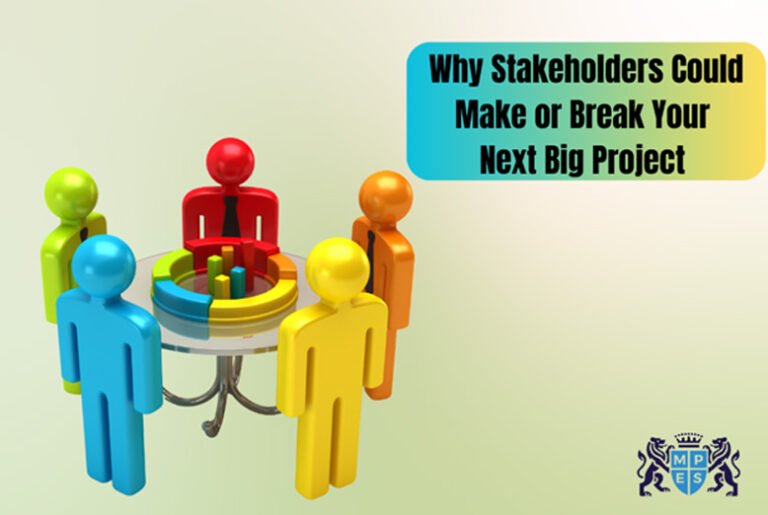You could have the best plan, the right team and plenty of funding. But if your stakeholders are not aligned, none of it matters. This is a hard truth many realise too late. Whether you are preparing for the ACCA Strategic Professional exams or managing a practical initiative, understanding stakeholder dynamics is not optional. So, What is a Stakeholder? Simply put, it’s anyone with an interest or influence in your project. And their impact can be massive. Let’s explore exactly why they can decide the success or failure of your next big move.
Table of Contents
- Why Stakeholders Matter More Than You Think
- Conclusion
Why Stakeholders Matter More Than You Think
Below are the key reasons stakeholders can make or break your next big project:
Stakeholders Hold the Power to Delay or Drive Progress
Stakeholders have the potential to be your greatest supporters or obstacles. Without the support of stakeholders, a project cannot proceed, even if all the other components are in place. The entire process can be slowed down by a single unresolved issue from a major stakeholder, even if the project manager is pushing for delivery. Delays in feedback or a single unsigned approval might have a cascading effect on the timeframe.
Conversely, active and helpful stakeholders can expedite decision-making and attract additional resources. They give the initiative more legitimacy and remove obstacles before they become apparent. Momentum increases rapidly when your stakeholders are proactive and in agreement. Their influence over choices, the priorities they establish, and the confidence they enjoy within the larger organisation are what give them power.
Misunderstood Stakeholders Can Derail the Entire Plan
Assuming that all stakeholders are the same is a common mistake that often leads to project failure. Despite their seeming passivity, some stakeholders have strong sentiments that only come to light once plans have been implemented. In meetings, some people could appear helpful, but behind the scenes, they may voice concerns. Misunderstandings are inevitable if you do not take the effort to find out what their genuine interests and worries are.
Decisions that do not meet their expectations may result from this ignorance. At that point, concerns arise, hold-ups happen, and trust begins to decline. Asking early on what each stakeholder values is preferable to responding later. What worries them? You can manage the project more precisely if you have a deeper understanding of their viewpoint.
Conflicting Priorities Can Spiral Out of Control
Every stakeholder has a different agenda. For example, the compliance officer might give documentation top priority, the marketing team might prioritise timetables, and the finance team might concentrate on cost. Friction increases if these conflicting objectives are not recognised and balanced. Teams are pulled in several directions while attempting to satisfy everyone.
These disagreements may turn into open hostilities in the absence of effective leadership and communication. Projects stall because no one can agree on what is most important, not because people do not want to. Finding common ground and defining expectations are crucial. Early and open conflict management is more important than avoiding it.
Ignored Stakeholders Often Become Vocal Critics
It’s never nice to be silent. A stakeholder who isn’t voicing concerns is frequently just disengaged, despite the common misconception that they must agree. Usually, when these disregarded stakeholders do speak up, it’s because something went wrong. And it may be hard to repair the harm by then.
They might start contesting choices, questioning the course of the initiative, or even circumventing you to higher authorities. Involving people early on, providing them with updates they can react to, and allowing for their opinions to be considered before issues develop are always more effective. Neglect attracts condemnation; involvement fosters support.
Clear Communication With Stakeholders Saves Projects
Most projects are ruined by confusion, not conflict. Frustration increases when stakeholders get imprecise updates or last-minute surprises. They begin to speculate or doubt the team’s competence. Delays and disagreements soon ensue.
Your best defence is prompt, clear communication. Stakeholders can maintain alignment by adhering to a consistent schedule of updates and candid status checks. Additionally, it allows them to ask enquiries before issues arise. People feel more confident when there is clear communication. Additionally, stakeholders who are secure in your choices are much more likely to support them.
Conclusion
Projects live or die by people. Tools help. Plans guide. But it is the stakeholders who tip the scale. Know who they are, why they matter and how to keep them engaged. These are not just soft skills. They are survival skills for any project leader. If you want to build real competence in this area, MPES Learning offers the insight and training you need to manage stakeholders with confidence.
Also Read: Embracing Change: Harnessing the Power of Impact Assessments



